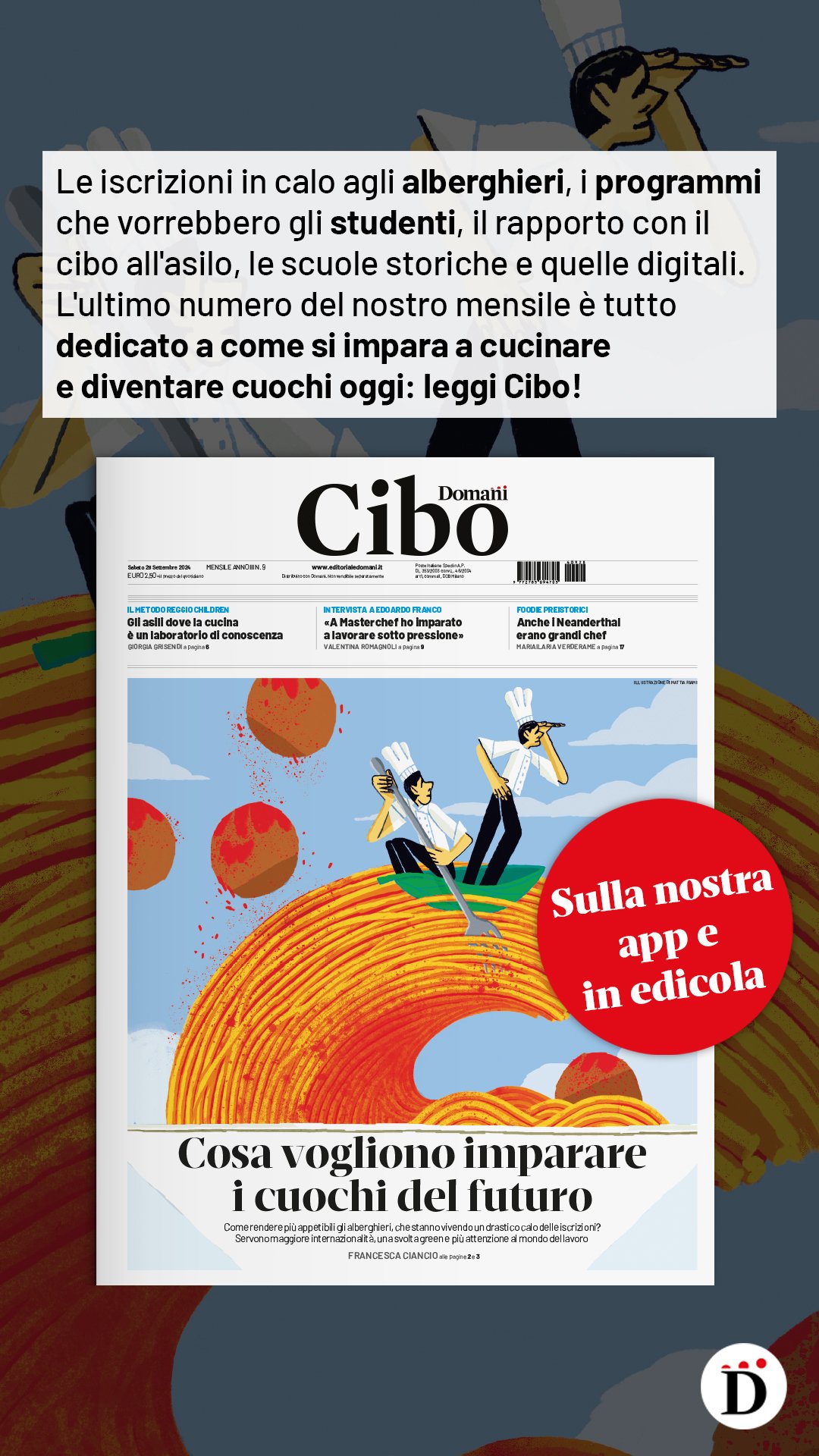Cibo
Domani Magazine
I created all the illustrations for the September 2024 issue
The insert focuses on food, with in-depth articles and investigations on the theme of "food." Food is not just what you find on your table; it is also closely connected to politics and everything happening in our society.
Discover all the illustrations below.
Profession of Hospitality: The Hotel Experience I Envision
The years of the MasterChef boom are long gone: today, enrollment is declining, and the sector is still feeling the effects of the pandemic. So how can hospitality education become contemporary? By fostering stronger connections with the job market, increasing attention to sustainability, and embracing international culinary cultures.
The Decline of Big Reds and the Discovery of Lightness
Wine, like fashion, is shaped by cultural trends. Previously, big reds were favored for their intense, ripe fruit flavors and concentrated structures, leading to a global preference for rich wines made with heavy barrel aging, a process often termed "Parkerization." This trend homogenized wine tastes and diminished regional diversity. Recently, however, the resurgence of indigenous grapes and a focus on terroir have celebrated uniqueness, contributing to a decline in the appeal of big reds, whose richness is now viewed as artificial. Inspired by Burgundy’s emphasis on vineyard specificity, there is a growing appreciation for lighter, more refined wines, particularly native Italian varieties like Frappato and Rossese, known for their freshness. This evolution highlights a deeper understanding of wine's essence while urging caution against new forms of homogenization that could undermine its complexity and diversity.
The Hogwarts Dining Hall
Professors who gift you chocolate in difficult times, sandwiches that self-produce and keep appearing as long as you’re hungry, school lunches that are like true wedding feasts. Perhaps from the magical world of Harry Potter, we don’t just want the ability to cast spells or disappear when needed, but also... food.
The way food is prepared, served, and shared at Hogwarts is much more human than we might think, made by affectionate house-elves and shared with dear friends.
But what about outside of school? Without having to leap into another world, we can enjoy dinner at the Three Broomsticks or buy the strangest candies from the Weasley twins in the theme parks with just a flight.
Robots for Sushi and Wok Cooking
Even kitchens are starting to use machines instead of employees: in Japan, it has become common practice for rolls to be prepared by robots in budget sushi restaurants. Similarly, in China, the process of closing dumplings is beginning to be automated.
School and Food
Loris Malaguzzi, the founder of the preschools in Reggio Emilia whose educational philosophy is based on the Reggio Approach, envisioned the atelier as a research laboratory where children could develop their "hundred languages." This metaphor refers to the multitude of ways in which children communicate and understand the world. The atelier thus becomes a bridge between imagination and reality, a space for creating meaning through direct experience.
Even Neanderthals Were Great Chefs
Even our ancestors, including the more distant ones, ate well, and to do so, they had to master the use of fire and cooking skills.

Niko Romito is a renowned Italian chef with three Michelin stars at his restaurant Reale in Abruzzo. He is known for his minimalist approach to Italian cuisine, focusing on simplicity and pure flavors, as well as his contributions to culinary education and research.

Edoardo Franco is an Italian chef who rose to fame after winning MasterChef Italia Season 12. He is known for his inventive approach to cuisine, blending traditional Italian dishes with modern, experimental techniques, and bringing a fresh energy to Italian cooking.










